As we’re getting set up, Hamish Rutherford is talking about Portugal.
Specifically, he’s talking about Nazaré - a town a couple of hours north of Lisbon which is famous as the home of giant waves.
It’s the kind of place Hamish, a former dive instructor who spent much of his late teens and early 20s travelling the globe, once would have visited on a whim.
Now, however, trips away take a bit more organising as Hamish has a job which very much keeps him tied to a physical location.
Although it’s fair to say he’s still found a wave.
As the founder of Floe, he’s riding the swell of the new working culture and setting about the creation of a network of co-working spaces which help businesses and individuals embrace remote working while maintaining a sense of community.
Prime amongst those locations is Maybrook House in the centre of Newcastle.
Floe occupies a full floor of the building, with a combination of hotdesks, communal spaces and small, flexible offices which house the likes of Sustrans, Atlas Cloud, Fabric and - soon - the Barclays Eaglelabs programme.
There’s a place, Hamish says wryly, for everyone but him and he often finds himself working perched on a high counter near the entrance.
“The whole concept of Floe was it was going to use underutilised space,” Hamish explains, “we started in Horticulture in their events space and I never had any intention of having my own physical space.”
The change of plan happened when he was introduced to his now business partners, the property management firm who look after Maybrook House and other commercial premises across the North.
The Floe concept fit neatly with their desire to harness some of their space for co-working, and so Hamish found himself putting down professional roots.
"Panicking is a luxury. In the sense that if you're in a situation where you have the ability to panic, you're in quite a luxurious position. In a really high stress situation, you are not allowed to panic and every decision comes down to one or the other."
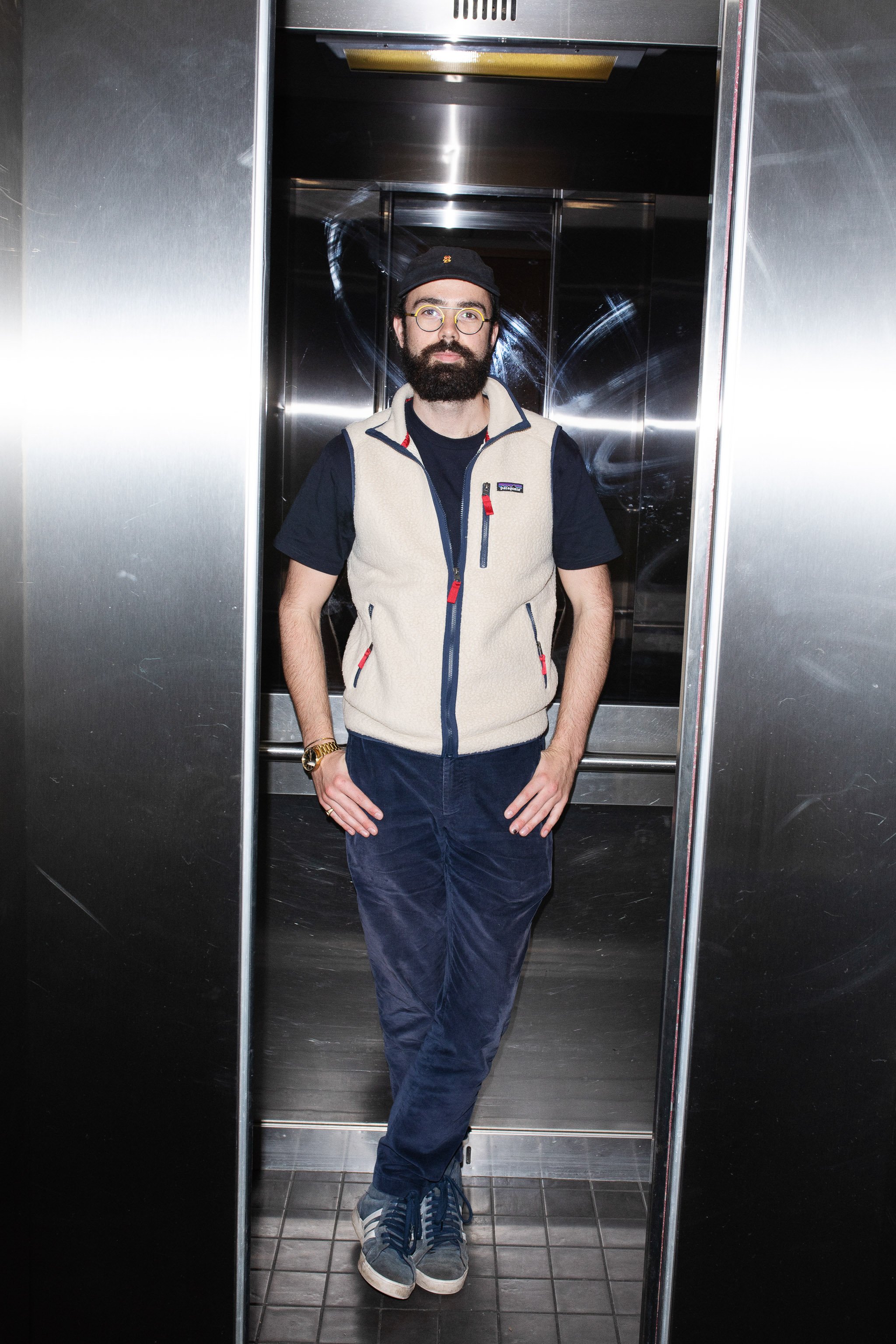
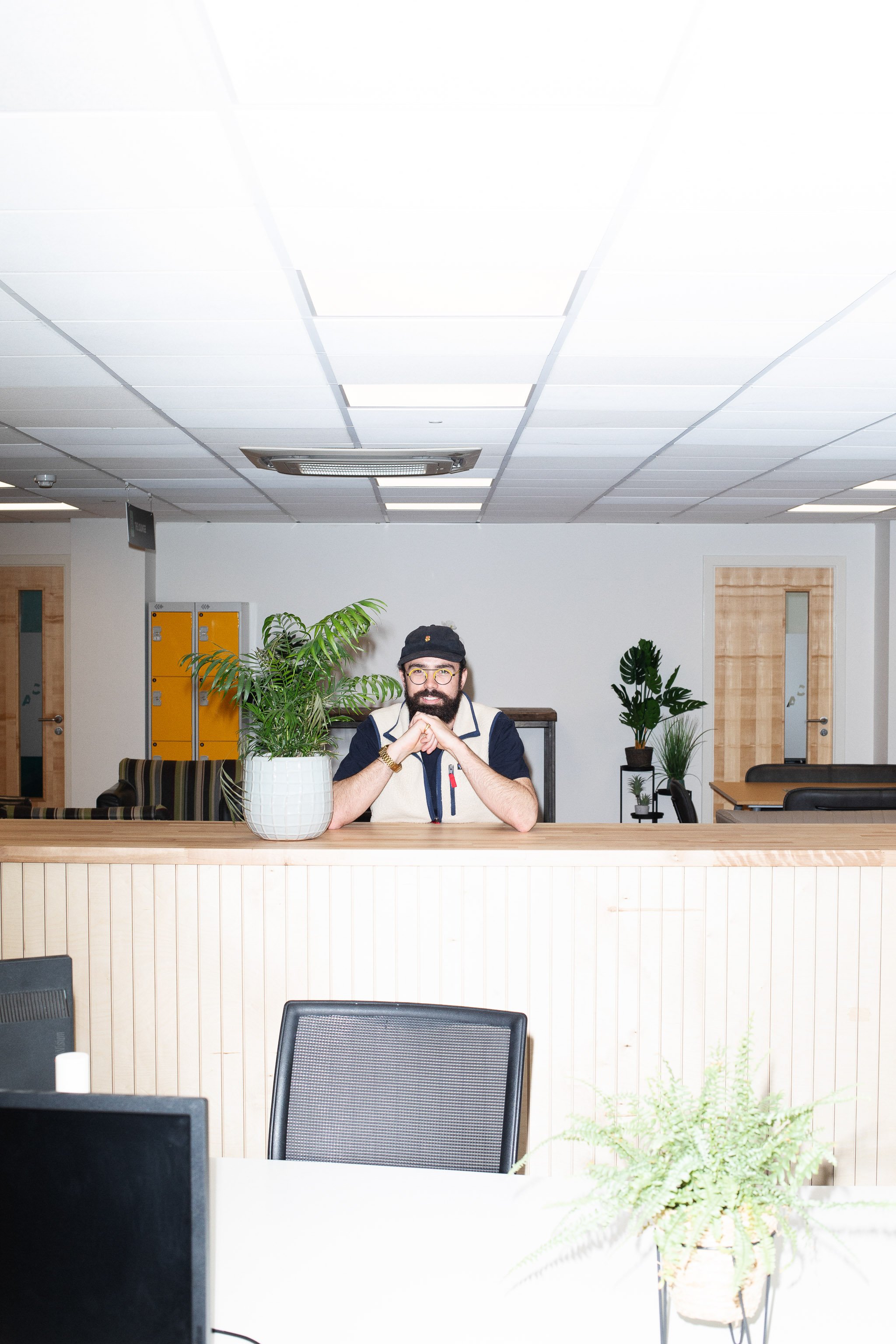
Opening in June 2022, the space is already full and expansion is next on the cards.
That rapid uptake is no surprise - 22.4% of North Easterners had their home as their main place of work in Q1 2022, up 12% from three years prior.
Keeping pace with that growth might seem like a challenge, but Rutherford has the air of someone who, once he’s set his mind to something, wastes no time in following through on it.
He talks a lot about workflows as a method of dealing with a project and its problems, and how it helps you make decisions quickly, working on the basis that A follows B follows C. It's an approach he learned while a commercial diver, working on projects like bridge constructions.
"Panicking is a luxury," he says, "in the sense that if you're in a situation where you have the ability to panic, you're in quite a luxurious position. In a really high stress situation, you are not allowed to panic and every decision comes down to one or the other."
"That's my mindset on everything," Hamish continues, "it's a workflow. You do that or you do that. It could be the most complex problem, but it'll all come down to one decision at a time."
Floe is Rutherford's first time running a business, but far from his first time jumping in at the deep end.
As well as the literal jumping in while working as a diver, he's also had experience of sales while working for a company which specialised in the design and build of children's playgrounds, and following a ski season in France he found himself with the opportunity to manage first a set of chalets and then a high-end chateau.
"It was terrifying," he admits, "because I didn't speak French and I'd never worked in hospitality. And then there was this massive chateau that had a fine dining restaurant. Proper silver service. I just got involved, worked with the staff and started serving. It was an amazing experience."
A career in French luxury hospitality seemed to be opening up in front of him, as his employer expanded rapidly, but then the pandemic brought everything to a screeching halt.
"I quit that job," he recalls, "came home, and started thinking about Floe."
"I knew there was definitely something in co-working," he continues, "but I really wanted to find the right solution to the right problem, instead of creating a lovely solution to the wrong problem."
For the next eight months, Rutherford researched and pondered the key issues - how were people's relationships with work changing? Why, if people were bored at home, were they not rushing back to the office? What were employers looking for, both in terms of space and the environment for their employees?
The end result was Floe.
As Hamish explains, he sees it as getting beyond the narrative of remote working just being about avoiding the commute and on to how it enables a different relationship with work.
“What's really fascinating is pre-lockdown everyone said ‘I just hate the commute’,” he says, “but now, I value it because it's actually half an hour of my day where I can just listen to podcast. I really enjoy a 40 minute walk to work because no one can speak to me. It’s quite nice. It's realising it wasn't actually the commute, the problem was how you commute. If I don't have to be in an office at a set time, I don't need to get stuck in that traffic. You're in control of how and where you work.”
Prospective co-workers or tenants register online as Floe members, and can book desks for the day or the month, or buy five or ten day passes to use as they want. For those who want something more fixed, there are options for dedicated desks, offices and meeting space.
At first glance, going from chateaus to co-working spaces is a bit of a departure, but listening to Hamish speak, you realise the connections and how every disparate step of his working life played a part in making him ideally suited to founding Floe.
There's the workflow decision making from diving, the knowledge of space and behaviour from designing children's playgrounds, and the ability to tune in to people's needs and work out how to meet them gained from hospitality.
You can see how each of these has informed Floe, especially the playground design.
Those playgrounds, Hamish says, were about “open-ended play and how do you design these beautiful wooden playgrounds to promote education and physical strength.”
There are echoes there in Floe’s space, with wood-panelled booths, collaborative tables and comfy chairs, banks of traditional hotdesks, and then dedicated offices which are set up, painted and branded to their tenants specifications.
It's a friendly, pleasant place to be, and even on a Friday afternoon is busier than most offices these days.
"I want this to be where they feel at home and safe," Hamish says of his members, "with that wellbeing aspect of knowing there's community there, and they're connected to people."
“It's not just about the desk,” he continues, “it’s networking, getting new work, getting different ideas. I'm trying to get something every Wednesday, like a climbing club once a month and events with Northstar Ventures once a month.”
There's huge variety in how people use Floe's space, he says, starting with those who use it as flexible office space: "I've got those like Atlas Cloud and Fabric with offices, then maybe it's one or two people who are working for the same company but just come in and hotdesk three times a week. And there are some people who just all come in once a month - one is a financial app based in London and the regional team, about five of them, come in once a month. And then a few freelancers, or people wanting to get out of the house."
“It's not just about the desk, it’s networking, getting new work, getting different ideas.”
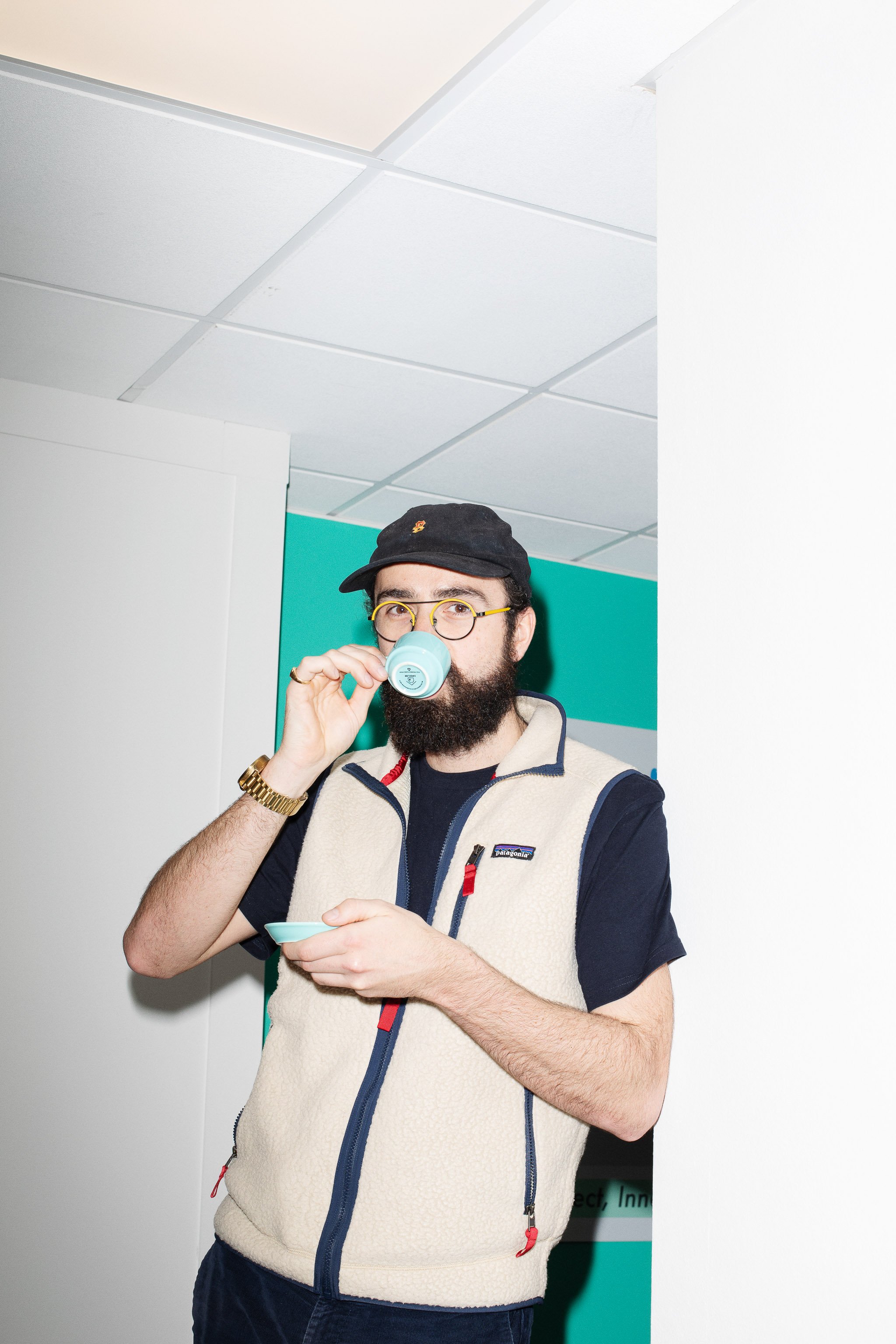
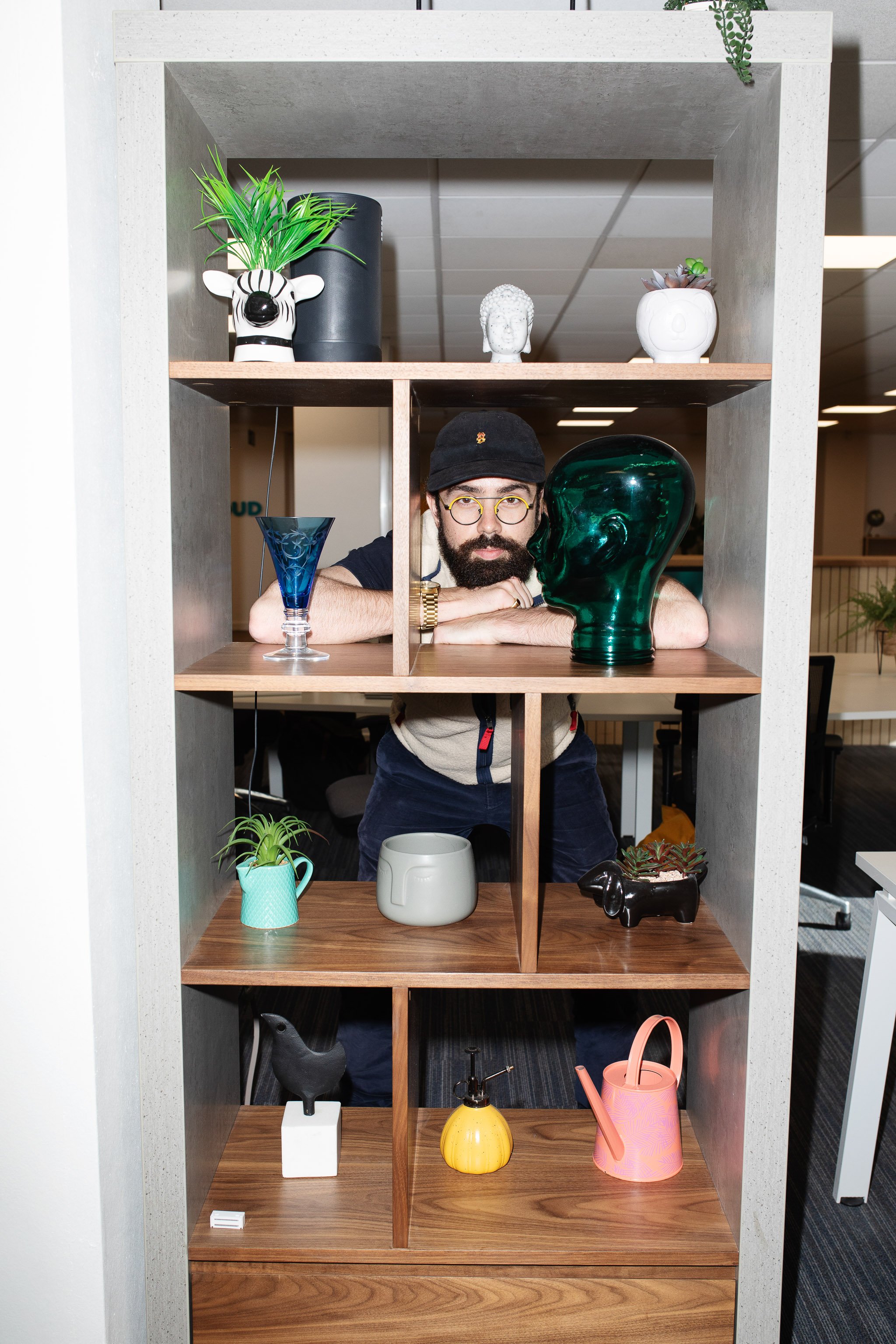
Co-working is a model which is far more prevalent elsewhere in the country - notably in London - and Hamish has a theory as to why.
"Maybe five years ago you'd come in and go 'We need to spend 5 million pounds on refurbishing this'," he says. "It's almost like you've got your triangle of needs. The sex appeal: how great does the place look? And then it's what are the functionalities of it? And then it's, okay, we'll do something about community."
But there’s a way to achieve great results with less risk and less investment, Hamish argues - just flip your approach.
"If you do the other way around and focus on community," he explains, "it's important what it looks like, but less so. What we've done is a lot of the furniture we've got from dilapidations. So, we're upcycling as much furniture as possible and that saved us about a hundred grand on this floor alone. It's better environmentally and it's a lot better cost-wise."
It's not just Floe who can save money through a community-focused co-working space.
"The cost savings for businesses are wild," he says. "If you're taking a floor the size of Floe, you're probably talking around 250 grand a year, because you got rent, business rates, utilities, insurance."
The obvious question, then, is why doesn't everyone do it?
"There's still a big education piece on co-working," Rutherford says, "people are still a bit unsure about what it is. 'Yeah, I don't want to be in a room full of people, stealing my ideas.' The person next to you does not give a flying fuck what you do! If it's something so special then go in a meeting room!"
Naturally Hamish is evangelical about co-working, and is aiming to challenge some of those perceptions by making it more accessible - both by direct expansion and through partnership.
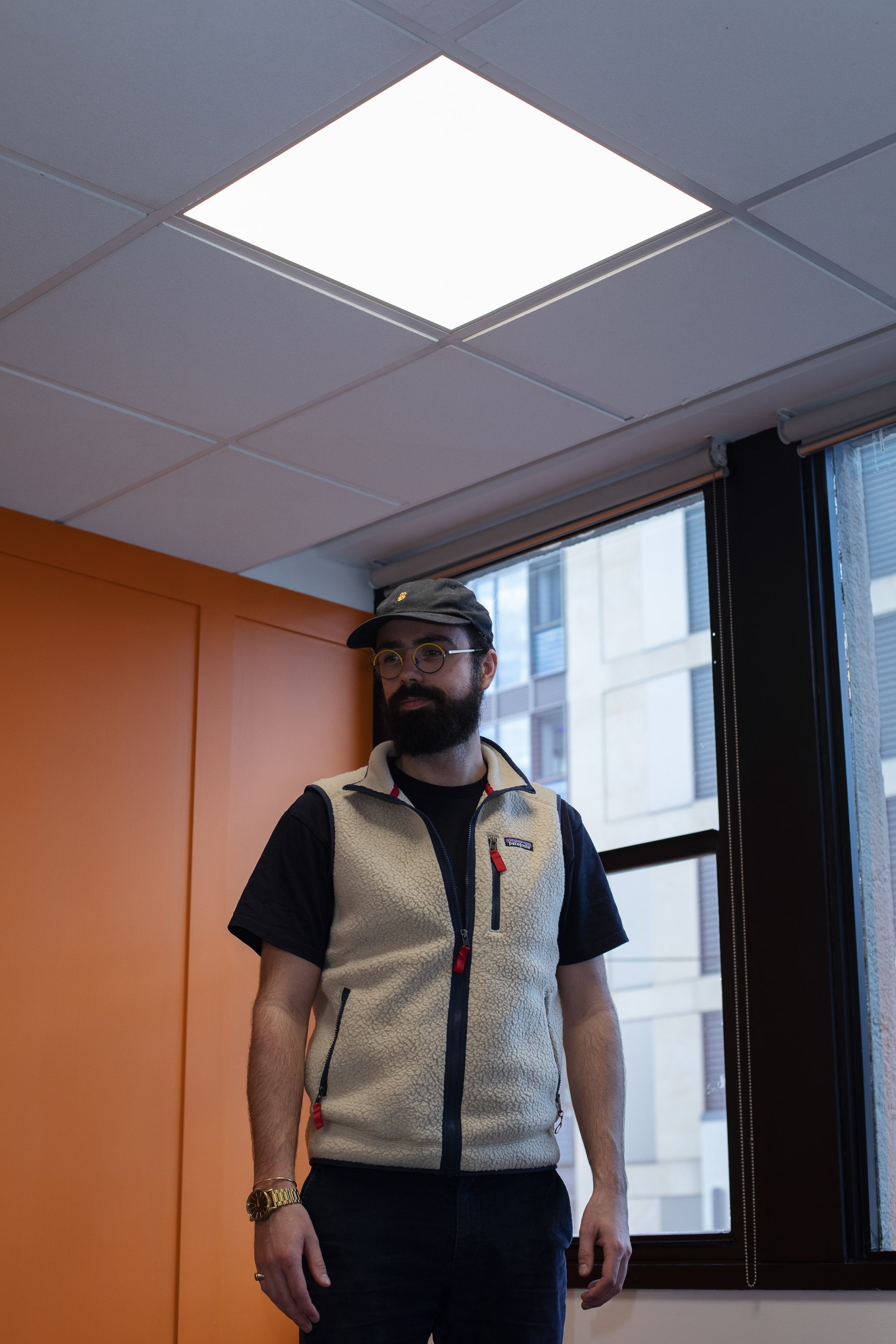
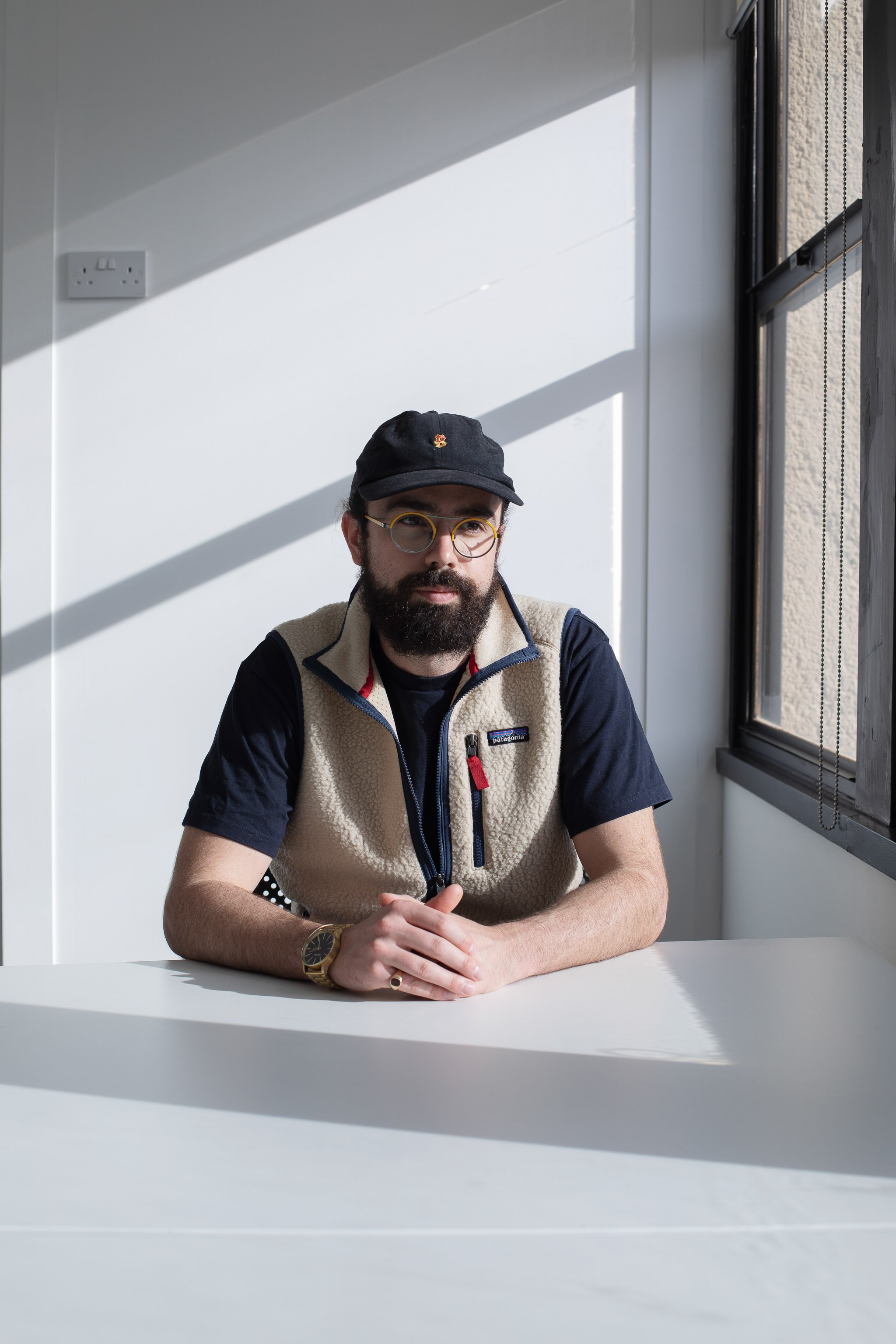
“No one wants fucking smoothies at work, what they want is a good culture and a good place where they feel cared for and their wellbeing is looked after totally.”
Floe are looking at larger space in Newcastle, as well as planning satellite co-working hubs in North Shields, the Team Valley and in Carlisle. Hamish is also in discussions with other co-working providers in other parts of the North to identify ways members can access other locations.
He’s also not forgotten the original premise of Floe - harnessing under-utilised spaces.
“I’ve got this concept of CAAS - co-working-as-a-service,” Hamish explains, “which I want to be the AirBnB of co-working. There's so much space that people just don't know about, and there isn't a booking system to actually be able to access it.”
The idea would be for Floe to provide the platform for people to list their available spaces, and take payment or make it available to their members. It could also serve as a way to connect more rural communities, or those with specialist needs.
Hamish continues: “We're looking at satellite hubs in Northumberland, working with the Rural Design Centre, to try to work with village halls, sports centres, and we’re also speaking to a brewery in Bellingham. Then hotels have meeting rooms, boardroom facilities. We’re talking with Newcastle University because they’ve got all these incredible labs.”
He’s in no doubt that co-working is not only here to stay, but is something which can grow, helping businesses and communities to flourish.
He’s dismissive of traditional efforts at tempting people back to the office - all snacks, beers and nap pods.
“No one wants fucking smoothies at work,” he concludes, “what they want is a good culture and a good place where they feel cared for and their wellbeing is looked after totally.”
As we’re finishing up, it’s about 4pm and a group of co-workers is heading to the door, one pops his head around the corner to catch Hamish’s eye.
“Are you guys going to the pub?” he asks, “Where are you going?”
Sounds like Friday afternoon in the office to me.






